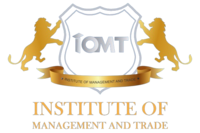
How do I become a boilermaker?
All skill levels
Beginner
Experienced
Recommended
MEM31922
Certificate III in Engineering Fabrication Trade (Boilermaking/Welding)
Apprenticeship, On Campus, Traineeship
12 - 48 months
$0 - $27,800
- There are no mandated entry requirements.








+ 2 more
MEM40119
Certificate IV in Engineering
Apprenticeship, Blended, On Campus, Online, Traineeship
12 - 48 months
$0 - $30,000
- There are no mandated entry requirements.








+ 20 more
MEM31922
Certificate III in Engineering - Fabrication Trade
Apprenticeship, Blended, On Campus, Traineeship
3 - 4 years
$0 - $28,000
- There are no mandated entry requirements.








+ 25 more
MEM30219
Certificate III in Engineering - Mechanical Trade
Apprenticeship, Blended, On Campus, Traineeship
12 - 48 months
$0 - $27,800
- There are no mandated entry requirements.
+ 18 more








+ 16 more
MEM31922
Certificate III in Engineering - Fabrication Trade (Boilermaking)
Apprenticeship, Traineeship
42 months
Unavailable
- There are no mandated entry requirements.



MEM31922
Certificate III in Engineering - Fabrication Trade (Apprenticeship)
Traineeship
4 years
$19,470
- There are no mandated entry requirements.
+ 2 more
 South West TAFE
South West TAFE
Related occupations
Common questions
Further reading


Choosing a security licence course in Australia: A step-by-step guide for jobseekers
10th November 2023)

